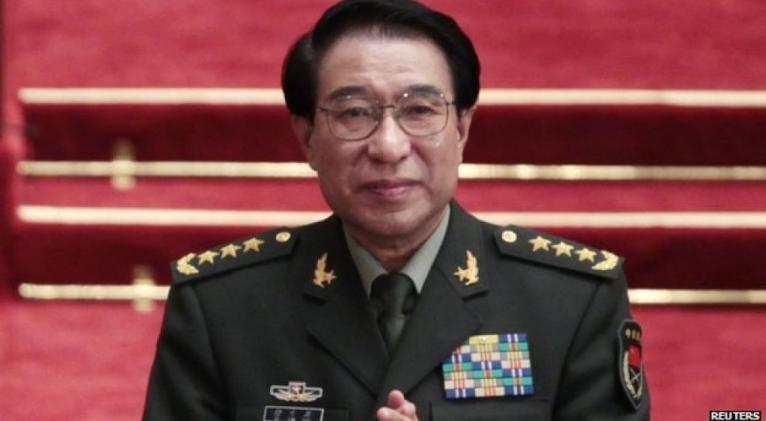Top China military official Gen Xu Caihou accused
especiales

Gen Xu Caihou was once a member of China's elite decision-making body, the Politburo. He will now be handed over to prosecutors for a court martial.
He is believed to have been held under house arrest for several months.
Analysts say this could be the biggest military scandal China has seen for many years.
Xinhua reported that President Xi Jinping had presided over a Politburo meeting about military discipline and approved the decision to expel Gen Xu and hand him over to military prosecutors.
Rumours about the investigation into Gen Xu had circulated for months. Many believed poor health - he is reported to have been treated for cancer - would save him from prosecution.
But this move is being presented in state media as part of the government's battle against corruption.
Two other high profile figures were also expelled from the Communist Party for corruption on Monday - Jiang Jiemin, the former head of the state asset regulator, and Wang Yongchun, the deputy head of the state energy giant China National Petroleum Company (CNPC).
The spate of expulsions comes at a time when speculation is rife about the fate of one of China's most powerful politicians, former Politburo Standing Committee member Zhou Yongkang, who is allegedly being investigated over allegations of corruption and abuse of power.
Jilin power
Tens of thousands of officials have been arrested since President Xi began an anti-corruption campaign in 2012.
The president has warned that the Communist Party's very survival is threatened by corruption and has vowed to root out every corrupt official, whether "tigers" or "flies".
Throughout his career, Xu Caihou rose steadily through the ranks of the military and the Communist Party.
He joined the army in 1963, and the party in 1971. A year after that he became the secretary and deputy chief of the political department of the military command in the north-eastern province of Jilin.
He spent most of his career in Jilin and the neighbouring province of Liaoning, where he was born, before taking up senior roles in the army's main political department in the 1990s.













Add new comment